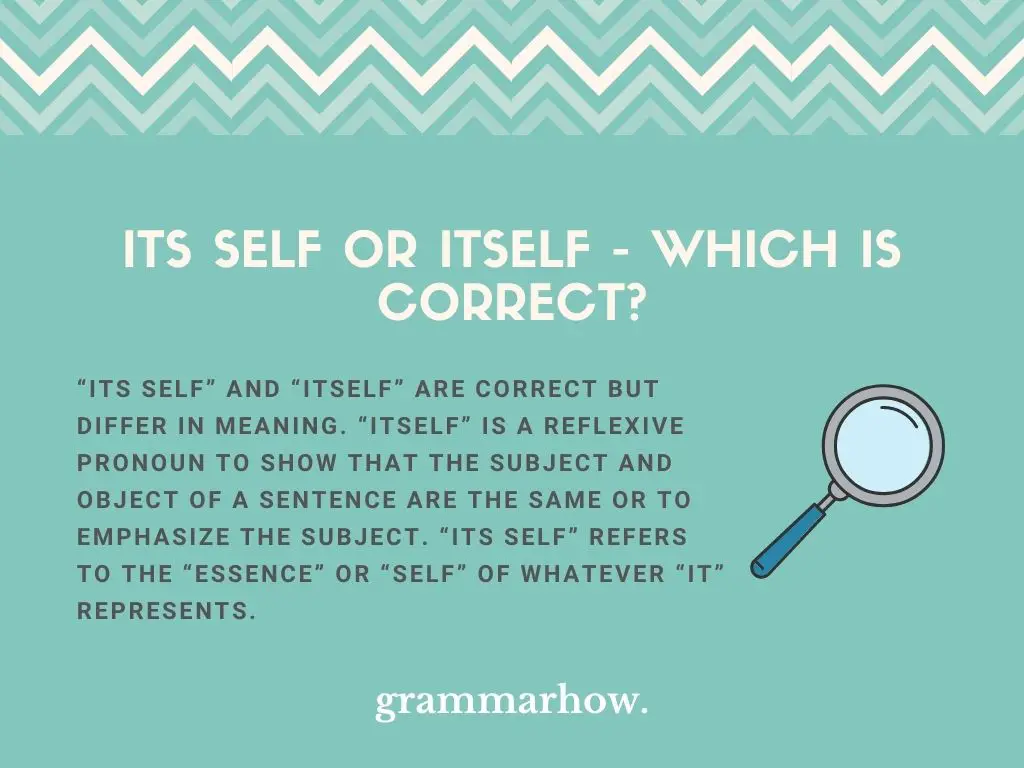The terms “its self” and itself” are a little confusing because of the change in meaning between them.
This page examines exactly what each term means and shows how they can be used in a sentence
Its self or Itself – Which Is Correct?
“Its self” and “itself” are correct but differ in meaning. “Itself” is a reflexive pronoun to show that the subject and object of a sentence are the same or to emphasize the subject. “Its self” refers to the “essence” or “self” of whatever “it” represents.

The Cambridge Dictionary states that “itself” is a reflexive pronoun used for two things. The first is to emphasize the subject of the sentence, and the second is when the subject and the object are the same thing. It is often used to state that something was done by “it” without the assistance of a third party.
For example:
- The cat licked itself all over because he had been out in the rain.
- The business itself remains open, but we have closed the shop.
When the words are separated into “its self”, the meaning changes, and it refers to the “self” or the “essence” of whatever the term “it” refers to.
For example:
- The brain and its self are what defines character.
- Everything that exists in the world has its self.
Its self
The term “its self” is a valid term often found in philosophical or religious texts. The term “self”, in this instance, refers to the “essence” or “being” of something.
This term should not be confused with the version “it’s self”, which is short for “it is self.” This term refers solely to the “essence” or “self” rather than the “self” which belongs to something.
Here are some examples of “its self” in a sentence:
- The brain is one of the most important organs, and its self is what defines you as a person.
- The difference between an animal and a human is that the animal cannot reflect on its self.
Itself
The Cambridge Dictionary states that the term “itself” is a reflexive pronoun with two main functions. The first is to add emphasis to a particular subject. The second is to indicate that the subject and object of a sentence are the same.
For example:
- The dog hurt itself by running into a rose bush.
In the second usage, you are essentially saying that something was done without the assistance or involvement of anyone else.
For example:
- The windscreen wiper turns on by itself as soon as the rain hits the windscreen.
Conclusion
The terms “its self” and “itself” are both valid terms, but they have different meanings.
“Its self” refers to the “essence” or “being” of something and is usually found in philosophical or religious texts.
The term “itself” is used to add emphasis, to indicate that the subject and object of a sentence are the same, or to show that something was done without the involvement of a third party.

Martin holds a Master’s degree in Finance and International Business. He has six years of experience in professional communication with clients, executives, and colleagues. Furthermore, he has teaching experience from Aarhus University. Martin has been featured as an expert in communication and teaching on Forbes and Shopify. Read more about Martin here.
